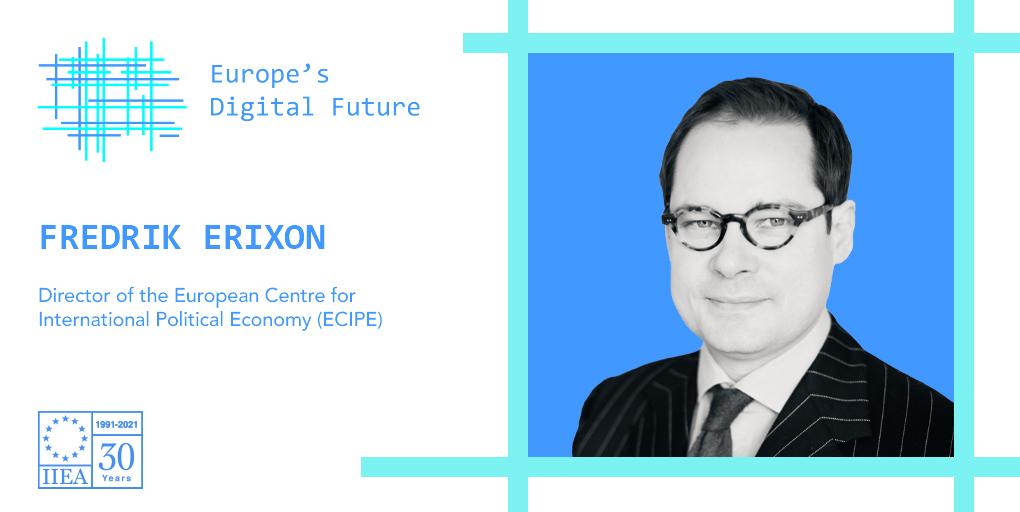European Digital Sovereignty and the Transatlantic Relationship

In his address to the IIEA, Fredrik Erixon argues that Europe's quest for digital sovereignty is unrealistic if it requires Europe to cut its dependence on the rest of the world by substituting foreign suppliers with local ones. Instead, Europe's relative economic decline means it will become more dependent on innovation and technological breakthroughs happening outside of the EU.
Mr Erixon argues that the EU should improve its autonomous capacity to use and commercialise new digital technology and that Europe should deepen collaboration with the US and other like-minded countries to help shape the global norms and rules guiding digital markets.
This is the sixth event in an IIEA project entitled Europe’s Digital Future, which is exploring the topic of ‘digital sovereignty’ in Europe. As part of this project, which is supported by Google, a year-long programme of events and research is exploring what this concept means, and what future it might herald for the EU and for small, open economies like Ireland.
Please note the earlier-than-usual start time of this event.
Fredrik Erixon has been the Director of the European Centre for International Political Economy (ECIPE) since it was founded in 2006. He is a Swedish economist and is the author of several books. His research interests include trade, regulatory policy and technological change and Europe’s relations with North America and Asia. The Financial Times has ranked Erixon as one of Brussels’s thirty most influential people.

